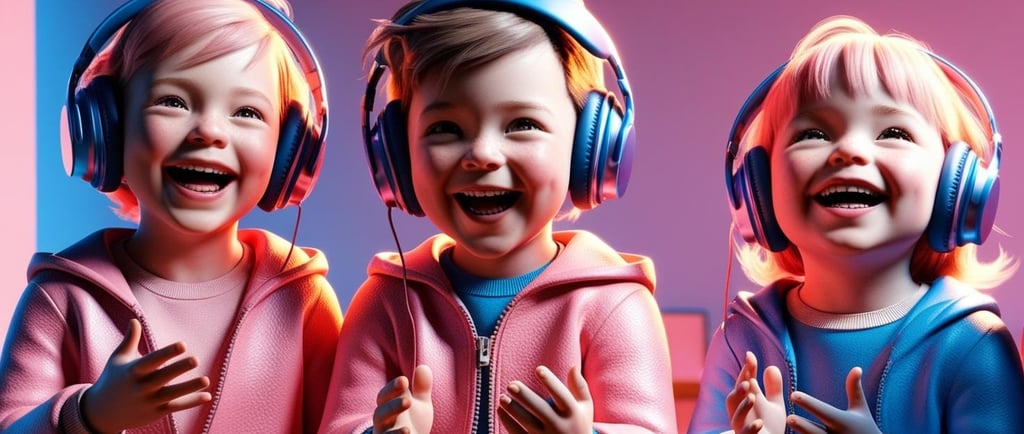The Science of Music: How Songs Help Kids Learn Faster
Discover how music boosts learning in children by improving memory, focus, and language development.
Tunezeez
9/27/20251 min read


Music is more than just background noise for children—it’s a powerful learning tool. From nursery rhymes to sing-alongs, songs shape the way kids absorb knowledge. But why does music have such an impact on learning? The answer lies in the way rhythm and melody connect with the brain.
Music and the Brain
Studies show that music activates both the left (logical) and right (creative) sides of the brain at the same time. This creates stronger pathways for memory and learning. That’s why children can recite the alphabet song more easily than if it were spoken.
Memory Made Easy
Songs use repetition and melody, which make information stick. Children often forget spoken instructions but can recall entire verses of songs they love. This shows how rhythm and rhyme transform learning into something fun and long-lasting.
Emotional Connection
Music ties emotions to learning. When kids enjoy a song, they’re more engaged, which improves retention. Personalized songs take this further by including their name, making learning feel special and meaningful.
Everyday Learning with Music
Parents can use music in simple ways:
Turn chores into sing-along games.
Use songs for learning numbers, letters, or new words.
Play personalized songs to boost engagement.
Music is not just entertainment—it’s a learning superpower. Whether at home or school, weaving songs into daily life helps children absorb knowledge faster and with more joy. With Tunezeez personalized songs, learning becomes not only effective but also magical.
Tunezeez
Big tunes for small ears
Request a song
Listen to our music
© 2025. All rights reserved.